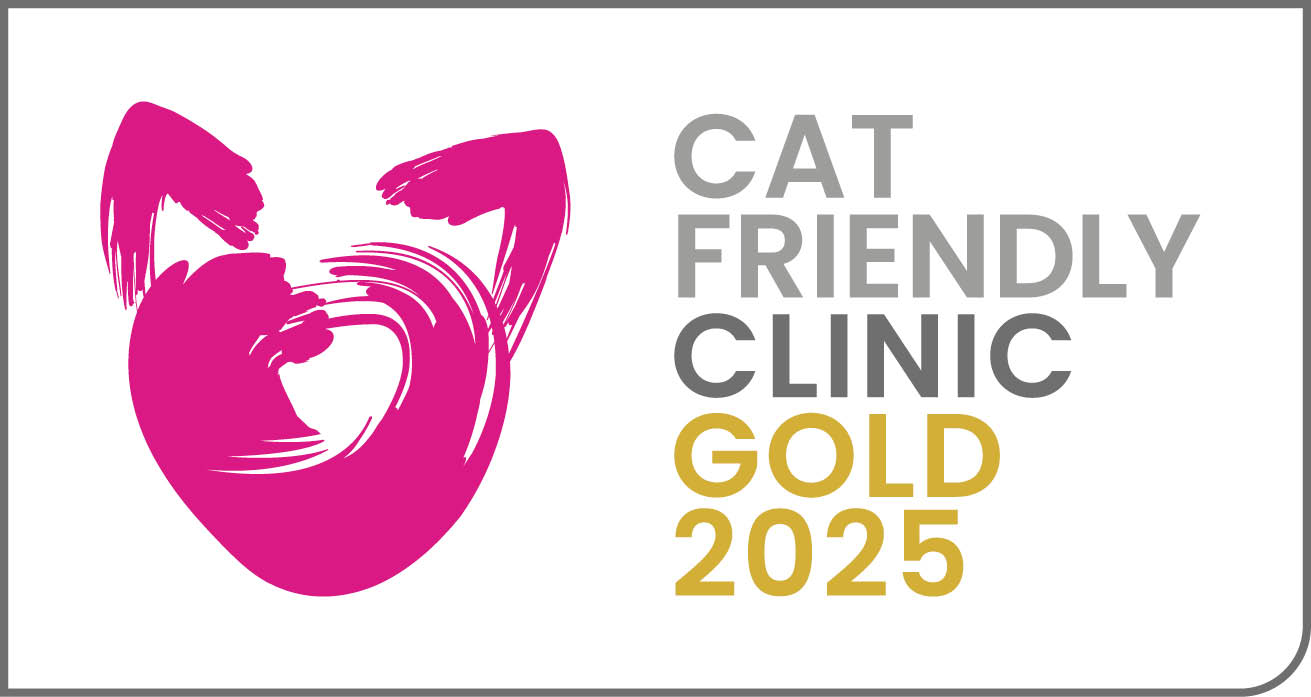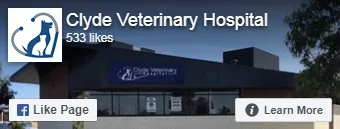CAT VACCINATIONS
Vaccinating your cat is vital to their long-term health. Every cat, whether indoors or outdoors should have in place their own regular vaccination regime tailored to their unique circumstances.
At Clyde Veterinary Hospital, we place a huge emphasis on preventative medicine, and ensuring your cat is vaccinated against threats from the most common contagious diseases forms a large part of our approach.
We use Feliway anti-stress medication diffusers in our dedicated cat-only areas. So your cat will come away from their trip to Clyde Vet more stress-free than ever before.
And being an internationally-accredited cat-friendly clinic ensures that our purpose-built state of the art animal hospital is the #1 choice for cat vaccinations in southeast Melbourne.
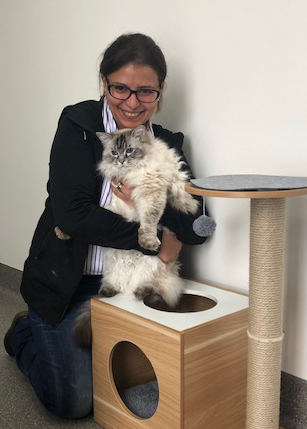
Preventative Care Focus
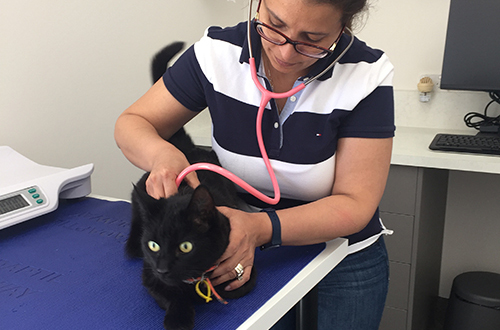
Easy Finance Available
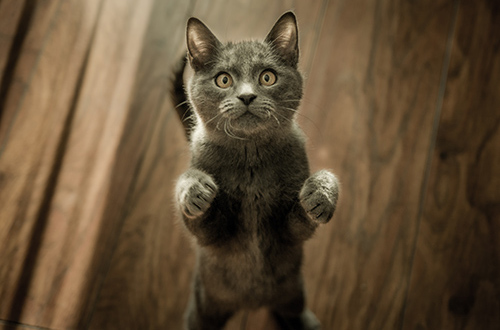
Book Securely Online
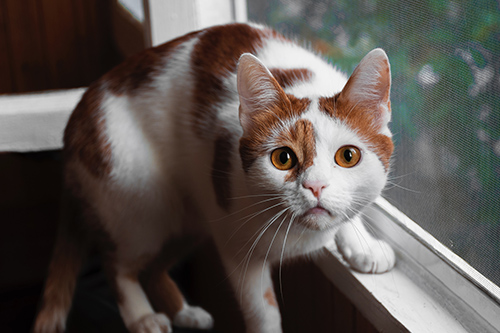
Dr Mitry’s “cat-side manner” is second to none, and she brings a strong focus on preventative medicine to everything we do at Clyde Veterinary Hospital. It’s about much more than just vaccinations, it’s about your cat’s long term holistic health and wellbeing.
And being internationally recognised as a ‘cat-friendly clinic’ means you can be sure we’ve taken all necessary steps to keep your cat’s stress to a minimum during their time visiting Clyde Vet.
Clyde Veterinary Hospital offers flexible payment plans for vet bills, with multiple payment solutions to suit all of our customers.
This includes VetPay and GapOnly, with each choice offering different advantages and considerations.
Use our safe and secure online booking service to manage your pet’s appointments with Clyde Vet at the click of a button, or phone the clinic direct on 9052 3200.
FAQs
What Vaccination Shots Does My Cat Need?
The World Small Animal Veterinary Association (WSAVA) categorises the most commonly recommended cat vaccinations as either “core” and “non-core” vaccines.
Your cat should be regularly vaccinated with the core vaccines, regardless of their lifestyle or location – even if your cat spends its entire time indoors. The core cat vaccinations are covered by what is known as the “F3 vaccine” – which covers feline herpes virus, feline calicivirus and feline panleukopoenia (also known as feline parvovirus ).
Feline Immunodeficiency Virus (FIV) is a potentially deadly virus that suppresses the cat’s immune system, and while it is considered ‘non-core’, many owners commonly elect to vaccinate their cats against it.
Other non-core cat vaccines may also be recommended based on your cat’s location and lifestyle. Talk to us at Clyde Vet about the vaccination schedule most appropriate for your cat.
What is the Ideal Age to First Vaccinate My Kitten?
Whether indoors or outdoor, kittens are highly prone to disease – especially during their first few months. Young kittens are particularly susceptible to feline Panleukopenia or feline Parvo, and this often proves fatal.
For this reason, we strongly recommend bringing your kitten in for regular vaccination shots, first at around 6-8 weeks, with follow ups at 10-12 and 14-16 weeks, followed by a yearly booster to provide the best protection for your cat.
Does My Cat Need to be Vaccinated Every Year?
Yes. To be certain your cat is always protected, whether indoor or outdoor, we advise all our clients on the necessity of regular annual vaccinations.
Do Indoor Cats Need Vaccination and How Often?
Yes, annually. While many pet owners think their indoor cats must be at minimal risk of exposure to these deadly bugs, many diseases are not purely spread by direct exposure to other animals, and they can find many ways of sneaking into the safety of your home undetected.
If you are uncertain about what is best for your indoor cat or kitten, contact us at Clyde Vet, and Dr. Mitry, with her years of experience in effective preventative medicine, can recommend the best approach for them.
Are There any Risks With Cat Vaccinations?
The point of vaccination is of course disease prevention and your cat’s long-term wellbeing, and side effects are uncommon. However, if the do occur they are usually mild e.g. lethargy, loss of appetite or tenderness at the injection site, and usually last no longer than a few days.
On balance, and from a preventative medicine perspective, we believe the benefits of vaccination so vastly outweigh the risks that you should not allow the risks to prevent you vaccinating your cat. If you have any specific concerns, contact us at Clyde Veterinary Hospital, to discuss your cat’s situation.
Will My Cat Need Recovery Time After Their Vaccination Shots?
Fortunately, most cats need no special care following vaccination as they show no obvious response and go about their lives normally. However, a small percentage of cats or kittens may show a mild response and look ‘off colour’ for a day or two. This is considered quite normal. You may notice that they have lost their appetite
and just want to lie around and rest. Some cats may resent being handled and may be sore or tender at the injection site.
Follow these handy after vaccination cat care tips, and your cat will be on the road to recovery in no time. If your cat is still showing symptoms more than 48 hours after vaccination, we recommend contacting Clyde Vet directly for further advice.
- Provide your cat with a warm, cosy place to lie down and rest. However, don’t be concerned if they wish to rest somewhere else.
- Make sure that they have access to water and their favourite food, but don’t be alarmed if they are not very hungry.
- Avoid patting or playing with your cat as they may wish to be left alone. They will come to you for attention when they feel like it.
- Check on your cat every so often, just to make sure they are comfortable, but try to disturb them as little as possible.
Should I Vaccinate My Cat Against Cat AIDS/Feline HIV?
In Australia, between 14% and 29% of all cats are FIV positive, with Victoria recording amongst the highest incidence rates. Statistics show rates of FIV infection in Australia are up to 4 times higher here versus the USA, and there is no known treatment or cure. Cats with FIV may develop Feline AIDS which is potentially a fatal disease.
Cats that spend any time outdoor or is in contact with other cats are generally recommended for immunisation.
Feel free to discuss a more detailed assessment of your cat’s needs with Clyde Veterinary Hospital.
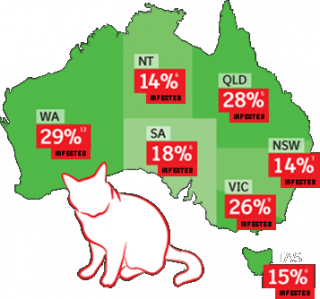
Will My Cat Need Vaccinating Before Boarding at a Cattery?
Cat boarding facilities will actually require your cat to be certified with a current vaccination certificate for the most common diseases. In fact we highly recommend this should be one of the key criteria you should use to assess the suitability of the facility for your precious fur baby to ensure they are returned to you healthy and disease-free.
We recommend you ensure your cat is recently vaccinated with all the necessary shots prior to boarding them at a cattery. If in any doubt, contact Clyde Vet for an assessment.


